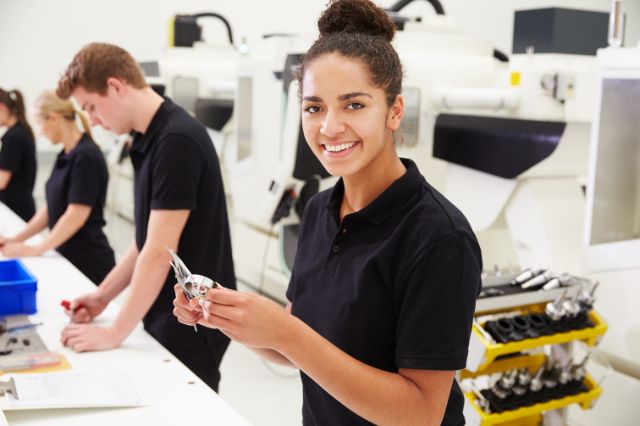International Women in Engineering Day is a great chance to recognise the vital roles that women have played—and continue to play—in the engineering industry. It’s a day to honour their achievements, discuss challenges, and motivate more women to join this exciting field.
Pioneering Women in Engineering History
The history of women in engineering is rich with stories of groundbreaking pioneers who defied societal expectations to lead and innovate.
One of the earliest trailblazers was Ada Lovelace, an English mathematician and writer in the 19th century, often regarded as the first computer programmer. She worked on Charles Babbage’s early mechanical general-purpose computer, the Analytical Engine. Her notes on the engine included what is recognised as the first algorithm intended to be carried out by a machine.
Across the Atlantic, Emily Roebling was another formidable figure in engineering history. After her husband, the chief engineer of the Brooklyn Bridge, fell ill, Emily took over the project. With no formal training in engineering, she managed to oversee the completion of one of the most iconic landmarks in New York City. Her tenacity and ability to learn and apply engineering principles were critical to the bridge’s completion in 1883.

The mid-20th century saw the rise of Hedy Lamarr, an Austrian-American actress and inventor who co-developed a frequency-hopping spread spectrum technology during World War II. This technology was intended to avoid enemy jamming of Allied radio communications, a concept that underpins modern Bluetooth and Wi-Fi networks.
During the same period, Beatrice Shilling, a British aeronautical engineer and motorcycle racer, made her mark by developing the “Miss Shilling’s orifice” to prevent engine cut-out in Spitfire and Hurricane fighter planes during dives. Her simple yet effective invention allowed British pilots to maintain engine power throughout aggressive maneuvers, giving them a crucial advantage during aerial combat in World War II.

These women not only paved the way in their respective fields but also demonstrated that skill and persistence are crucial to engineering, regardless of one’s gender. Their achievements laid the groundwork for future generations of women in engineering, inspiring all generations to follow.
Modern Innovators and Leaders in the Field
Today, women engineers are not just participants in the field but are leaders and innovators. For instance, Gwynne Shotwell, an American businesswoman and engineer, currently serves as the President and COO of SpaceX, where she is responsible for the operational success of some of the most advanced spacecraft and technology in the world.
When we take a look at the percentage of women in Engineering roles in the UK, it is around 16% and on a global level this figure sits around 13%. However, highlighting figures such as Gwynne Shotwell proves that women’s involvement is crucial for future advancements.
Encouraging Future Generations
Encouragement and visibility are key in motivating more women to enter and flourish in the engineering industry.
It’s important for women in engineering to have access to role models and leaders who look like them. Seeing someone in a position of influence who shares similar experiences can greatly influence young women’s career choices and aspirations.
Many colleges and Universities are making huge strides towards encouraging women in the field of engineering. Take Leeds University for example. They have various awards and support networks for both their female staff and students to help guide and support them as well as celebrate their achievements.
There are also societies such as the Women in Engineering society set up specifically to support women in the industry.

Supporting Women in Engineering at The Electronics group
At the Electronics group not only do we support women in the field of engineering with our IPC and Electronics Training but we also like to celebrate the women on our team who work hard to do their part for the industry.
We have Claire, who is one of our Master IPC Trainers, Laura our Account Manager and Callie in Marketing. All dedicated to providing top level training, supporting our clients and growing our reach so that we can continue to play our part in supporting the Electronics engineering industry.
Women in Engineering and Looking Forward
Women in engineering have come a long way but still have a considerable path to tread. It’s up to all of us—men and women, engineers and non-engineers—to continue pushing for a more inclusive and equitable engineering environment. Celebrating achievements of women in the industry inspires ongoing change and encourages more women to consider a future in this field.
Let’s keep the momentum going, contact us today to see how we can support you on your engineering career path.


